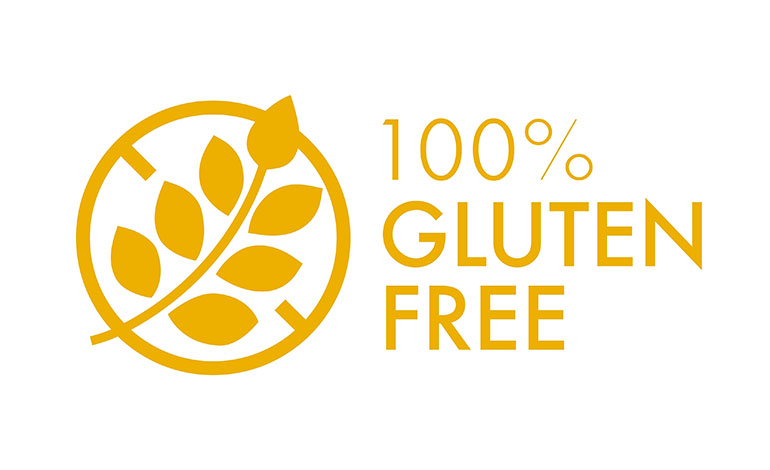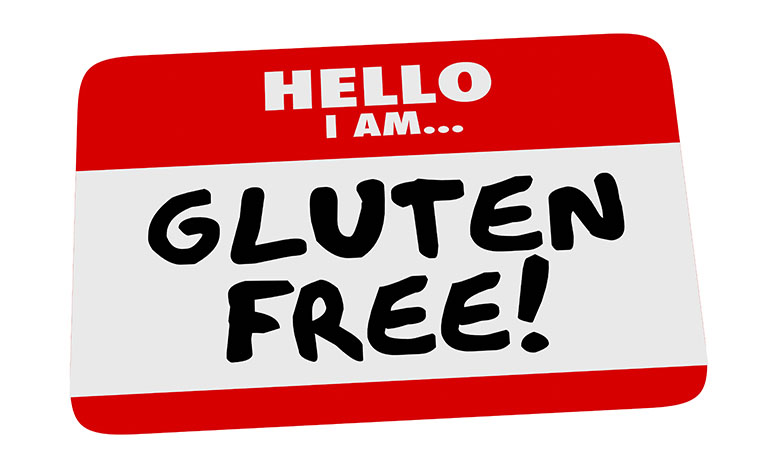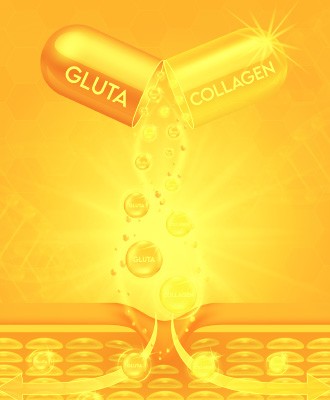Is Collagen Gluten Free?
- By Yonboon Team
- December-5-2023
If you are someone with gluten sensitivity, you have to be extra careful when choosing collagen supplements.
Let’s discuss the relationship between collagen and gluten. Read on to know the sources of collagen, and how to make sure the supplement you are opting for is 100% gluten-free.
First, let’s see…
What is Collagen?
You might already know the answer to this. But if you are just a newbie, here’s a simple explanation of what collagen is.
“Collagen is the most common protein in the human body. It serves as the structural framework for our bones, joints, tendons, skin and more. It won’t be an exaggeration if we say that collagen is a glue that holds our body together..”
If you need to know more, here’s everything you need to know about collagen.
Moreover, to know if collagen is gluten-free or not, you need to know the sources.
Different Sources of Collagen

1. Marine collagen
Marine collagen is usually sourced from fish skin and scales. It is hydrolyzed collagen known for its smaller particle size leading to better absorption by the human body.
2. Bovine collagen
Bovine (cow) collagen is the most common source of collagen supplements. It is derived from cow hides and bones.
3. Chicken collagen
Chicken collagen is sourced from chicken bones and cartilage. It is type II collagen which is ideal for improved joint and bone health.
4. Plant-based collagen
Plant-based collagen is actually not a thing. There are 19 amino acids in collagen protein. And plants do not contain the entire set of amino acids required to produce collagen. So, plant-based collagen is not 100 percent collagen.Related: Is Marine Collagen Better Than Bovine?
Now you know enough about collagen, let’s discuss…
What Exactly Is Gluten?
Gluten is a protein found in wheat, rye and barley. It helps in the dough’s rising and provides flexibility to it.Mostly, gluten is safe for the majority of people and can be included in their daily diet. But for some people with celiac disease, consuming gluten can cause immunological reactions. This can harm the lining on the small intestine, leading to many gastrointestinal problems.
Now The Question Is: Is Collagen Really Gluten Free?

This debate usually occurs when we talk about bovine collagen supplements. Mostly collagen derived from cows is gluten free. However, there are two possibilities of gluten in bovine collagen, either the diet taken by the cow or introduction of gluten while processing supplements.
It is important to read product labels to avoid any cross-contamination possibilities during processing.
Supplements containing collagen that come from cows are rarely gluten-free. Therefore, to make sure there isn't any cross-contamination, it's imperative to read labels and speak with the manufacturer.
As marine collagen is hydrolyzed and is a highly purified form of collagen, it does not involve any chance of gluten contamination.
Good news for you—all of the Yonboon premium marine collagen products are not only gluten free but also lactose free. This makes our products safe to use for people with food sensitivities.
The Importance of Reading Labels

What’s the quickest way of making sure that your collagen supplement is free of gluten? Checking its label that says “100% gluten-free”. Also, you can get confirmation from the manufacturer’s production methods by getting in touch with them.
But Wait, There May Be Some Potential Concerns
Cross-contamination can be a possibility when manufacturing collagen supplements. This is especially a concern if the same facility processes products containing gluten.Cross-contamination occurs when gluten particles somehow make their way into gluten free products. This is why it’s important to choose collagen supplements from reputable companies that follow strict quality control measures.
Read also: What Does Collagen Do for Your Skin?
Useful Tips for Choosing Gluten Free Collagen Supplement

If you have made up your mind to include collagen supplements in your daily routine, it is important to choose high-quality products. Go with hydrolyzed collagen as it has been broken down into smaller, easy to absorb and more helpful ingredients. Avoid using supplements with artificial flavors.
We will share some useful tips to help you choose gluten free collagen supplements.
- Go for premium quality brand: choose well known and trusted brands such as Yonboon. We prioritize quality and transparency in our manufacturing processes.
- Check product labels: Make sure you read product labels thoroughly. Look for an accurate label of “gluten free” or certifications from reputable companies.
- Choose supplements with single (or minimal) ingredients: opt for collagen supplements with less ingredients, this would reduce the chances of hidden sources of gluten.
- Third party testing: look for supplements that have undergone third-party testing to ensure their gluten-free status.
Multiple Benefits of Collagen

Collagen offers numerus health benefits including but not limited to:
- Joint support and bone health
- Better hair and nail growth
- More skin hydration and elasticity
- Better gut health
With these amazing benefits, more and more people are inclining towards adding collagen to their daily routine. For detailed information, have a look at our crisp blog on different types of collagen and their benefits.
FAQS
Does powdered collagen have gluten?
Collagen powder is free of gluten. As the extraction process used to make collagen supplements is highly refined, it lowers the chances of gluten contamination. You must check product labels to be sure they meet your dietary needs if you have gluten sensitivity or celiac disease. Yonboon marine collagen powder is 100% vegan and gluten free.
Do collagen peptides have gluten?
Almost 80 percent of the collagen peptides don’t have gluten. It is advisable to read the instructions on product labels before consuming collagen supplements.
Who should not use collagen?
Well collagen supplements are safe for most people. You might have sensitivity to the collagen source (marine or bovine). If you are on certain medications, we advise you to consult your doctor before starting with collagen supplements.
Can I drink collagen with IBS?
Yes. Collagen is safe for those who have IBS (irritable bowel syndrome). It is important to monitor how collagen affects your condition because any dietary change can induce stomach discomfort for IBS patients.
Summing It Up
With numerus research studies and surveys, we can conclude that most collagen supplements are gluten-free. However, you need to identify the source in order to be sure. Marine collagen supplements are naturally gluten-free and safe for people with gluten sensitivity.
Supplemented collagen offers various health benefits, but it is important to make the right decision for your dietary needs.
You can choose specific collagen supplements that suit your lifestyle and dietary needs, take our Meet Your Match quiz and decide for yourself!





